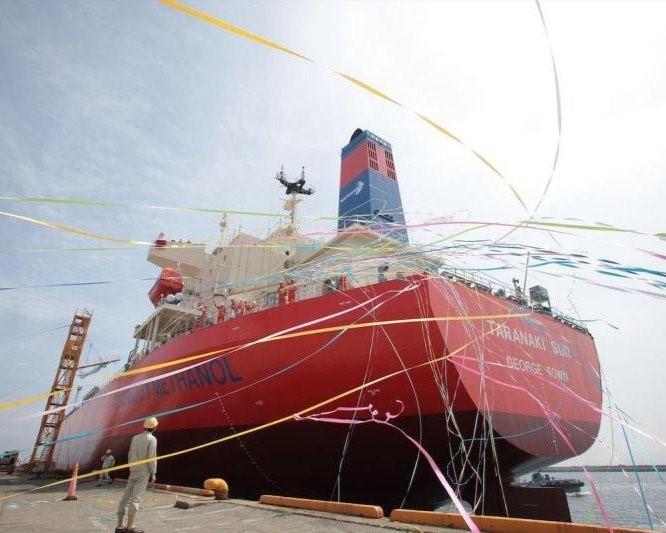The CEO of the Methanol Institute is arguing for the use of methanol in shipping saying it is a commercially and technically viable marine fuel over alternative bunkers, including LNG.
Speaking at a virtual conference, Greg Dolan, CEO of the Methanol Institute, a trade body whose shipowner members include Maersk, Stena Bulk, MSC, MOL, and Oldendorff Carriers, predicts that methanol production costs will fall to become more competitively priced than traditional diesel bunker and other alternative fuels.
"Methanol as a commercially and technically viable marine fuel is gaining greater traction over other alternative bunkers, including LNG, as more shipowners adopt the clean-burning fuel as price spreads narrow and production ramps up," the Methanol Institute said in a statement.

Dolan noted that the move to methanol would also help shipowners avoid the proposed carbon tax on diesel, which could be between US$250 and $450/t of CO2.
"There’s a call by many including the world's largest shippers for a carbon tax on diesel fuels. That would dramatically change the pricing picture for marine fuels and the only available alternative fuel options today are advanced biofuels, LNG, and methanol," he added.
As a transitional fuel, methanol is supported by the International Maritime Organization in its recent adoption of safe handling guidelines under the IGF Code for low flashpoint fuels.
“This has been an important milestone in the growth of methanol as a marine fuel,” Dolan said. “And while LNG paved the way for methanol, methanol adoption can be a model for ammonia and hydrogen in the future.”
According to Dolan, methanol production increased last year to 100Mmt, doubling production in a decade. He said production could reach 500Mmt by 2050, as predicted in a joint Methanol Institute/International Renewable Energy Agency report released earlier this year.
Commenting on those shipowners that have already announced plans to include methanol within their fuel pool, Dolan told attendees at the Maritime AMC-organised Alternative Fuels webinar that first movers, such as Maersk, understand “there is little time left to wait on potential solutions that might fulfill 100% of their 2050 goals. They know we don't have 30 years to wait.”
Maersk announced in March that its first methanol-burning vessel will launch in 2023, seven years ahead of schedule. The company also mooted an order for twelve 15,000TEU methanol-fuelled containerships.
Methanol-fuelled newbuilds also cost less than an LNG-burning ship, according to engine builders MAN Energy Solutions and Wärtsilä.
Kjeld Aabo, Director New Technologies two-stroke promotion, MAN Energy Solutions, told attendees that a 54,300m3 capacity product tanker running a methanol-fuelled engine would add about 10% to the newbuild price. The same vessel running on LNG would cost 22% more than a conventional HFO-burning ship, he added.
The engine builder, which first unveiled and tested a methanol dual-fuel engine in 2016 and has a current order book of 23 ME-LGIM engines, said methanol combustion emits 8% less CO2 than an HFO Tier II engine.
“I really believe there will be a big market for methanol in the future and the technology on the engine side is there,” Aabo added.



